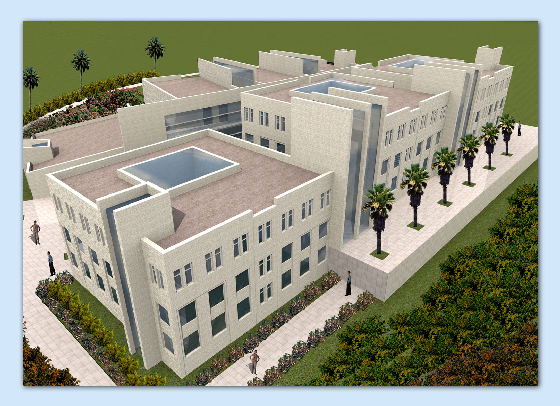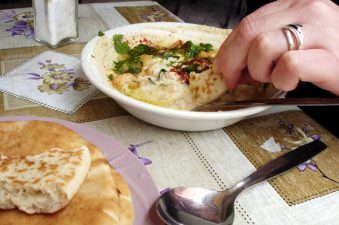 With a burgeoning population and no natural resources to provide energy, Palestine has found a hero in MENA Geothermal.
With a burgeoning population and no natural resources to provide energy, Palestine has found a hero in MENA Geothermal.
In a world where natural gas is diminishing and oil spills spoil our oceans, we would think there is no better means to generate energy. Because if there were, surely we, intelligent beings that we are, would pounce at the opportunity to incorporate them. Finally, MENA Geothermal has done just that. In addition to its renewable, sustainable, zero emission heating and cooling systems for various commercial and residential applications, the company’s President, Khaled Al-Sabawi, recently signed an agreement with the US Consul General in Jerusalem to provide clean geothermal energy for the 522 unit Kober Affordable Housing Project near Ramallah.
The sun beams energy onto earth, half of which is stored underground. Unlike outside temperatures that fluctuate, underground temperatures remain fairly consistent year round. To capture this heat-energy, Al-Sabawi, a Canadian-Palestinian engineer (see video below), designed a system that provides 4.4 units of heating energy for every unit of electricity used. According to the company’s website, this equates to a 440% efficiency rating.
First MENA Geothermal digs relatively shallow boreholes – which depth depends on external factors – and installs pipes carrying a liquid that absorbs the stored heat. This is then pumped to an indoor compressor that raises the temperature and distributes the heat throughout the building. Otherwise, in the summer, the same system extracts the building’s heat and pushes it underground. MENA Geothermal’s system also has the capability to heat water.
Etihad Subdivision
Their first installation in Ramallah – which was supervised by the International Ground Source Heat Pumps Association and European Union’s MED-ENEC – was the Etihad subdivision that has a 23kW cooling load and a 21kW heating load.
There, annual heating and cooling costs have decreased from $9,100 to $2,960, which amounts to a staggering 70% energy savings. How quickly the system costs pay off depends in part on each system’s heating and cooling requirement. MENA’s systems are also relatively easy to maintain. The underground pipes are built to last for decades, while the indoor components, such as filters are easy to replace when necessary.
Bigger and Better
Success propels them to dare bigger and bigger projects. The University of Madaba in Jordan, owned by the Latin Patriarchate of Jerusalem and blessed by the Pope, has installed a 1.6MW heating and cooling system. The system comprises a unit for the College of Science Building (A) and the college of Business Building (B).
The former has a cooling load of 291 ton and heating load of 251 ton, while the latter has a 189 ton cooling load, and a 134 ton heating load. What this means is that every year the University will save 200,000 kWh electricity and 100,000 litres of diesel fuel, and all this with zero emissions.
While we have barely begun to understand the potential consequences of this outstanding development, Al-Sabawi has set his sights high. He understands that Palestine in particular, with its growing population and lack of natural resources, stands to benefit enormously from his technology. His vision earned him the 2008 Energy Globe Award, but Palestinians stand to gain so much more: cheap, emissions-free energy for as long as the sun keeps shining.
More green news from Palestine:
Alexander River’s Still Polluted – Could Improve With Help From Palestinian ‘Friends’
Calling all Young Architects and Grad Students to Join ECOWEEK 2010
Construction Underway on Rawabi, First Planned Palestinian City
(Tip via Jon Jensen)




